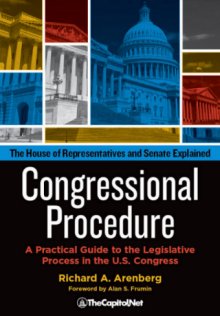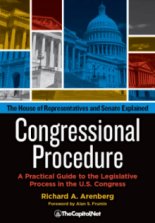Richard Arenberg’s “Congressional Procedure” from TheCapitol.Net
ALEXANDRIA, VA – (October 8, 2018) – Just in time for the November midterm elections, TheCapitol.Net is pleased to announce the publication of a major new reference work, Congressional Procedure: A Practical Guide to the Legislative Process in the U.S. Congress, by Richard A. Arenberg. If the U.S. Constitution is the rule book, this is … Read more




